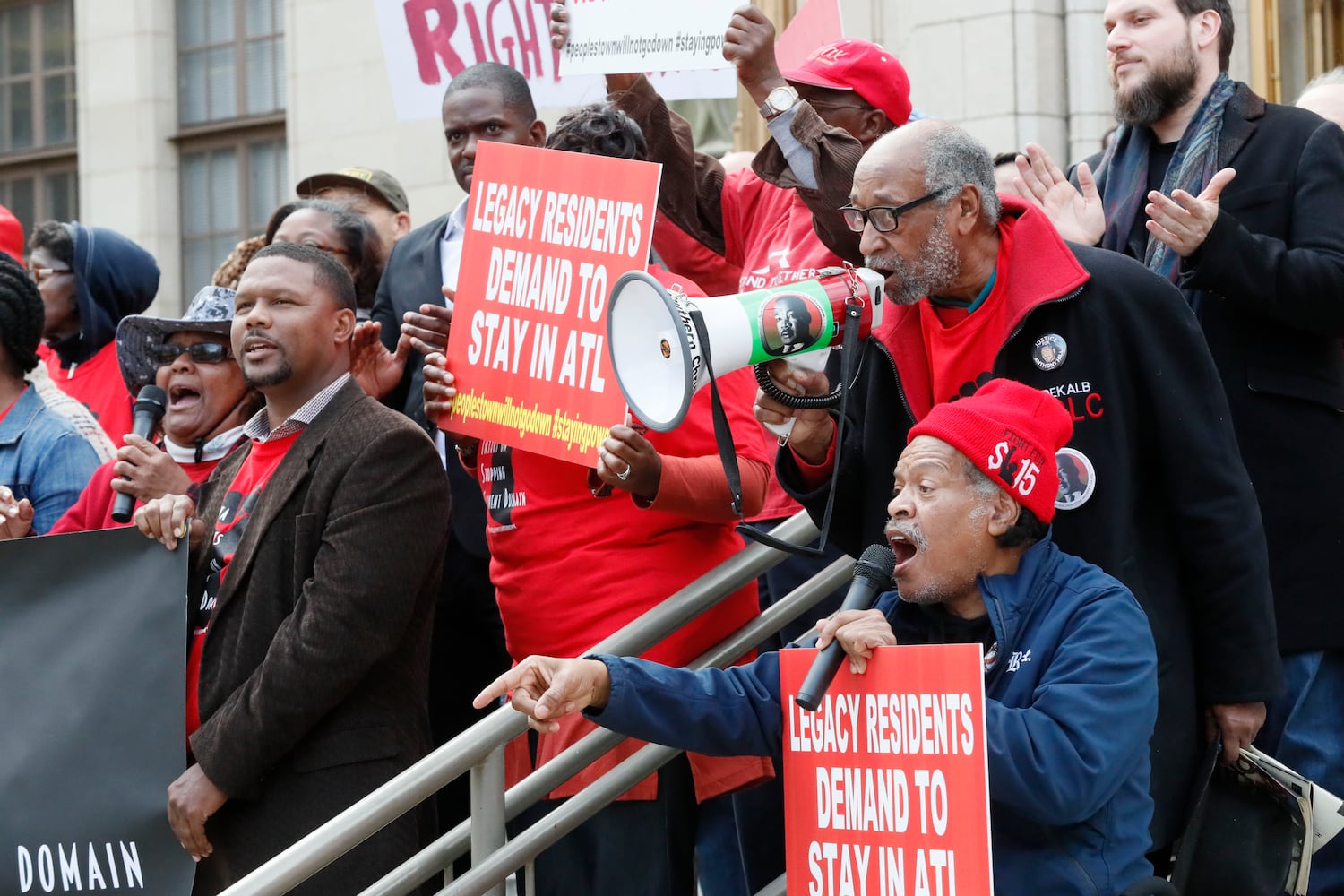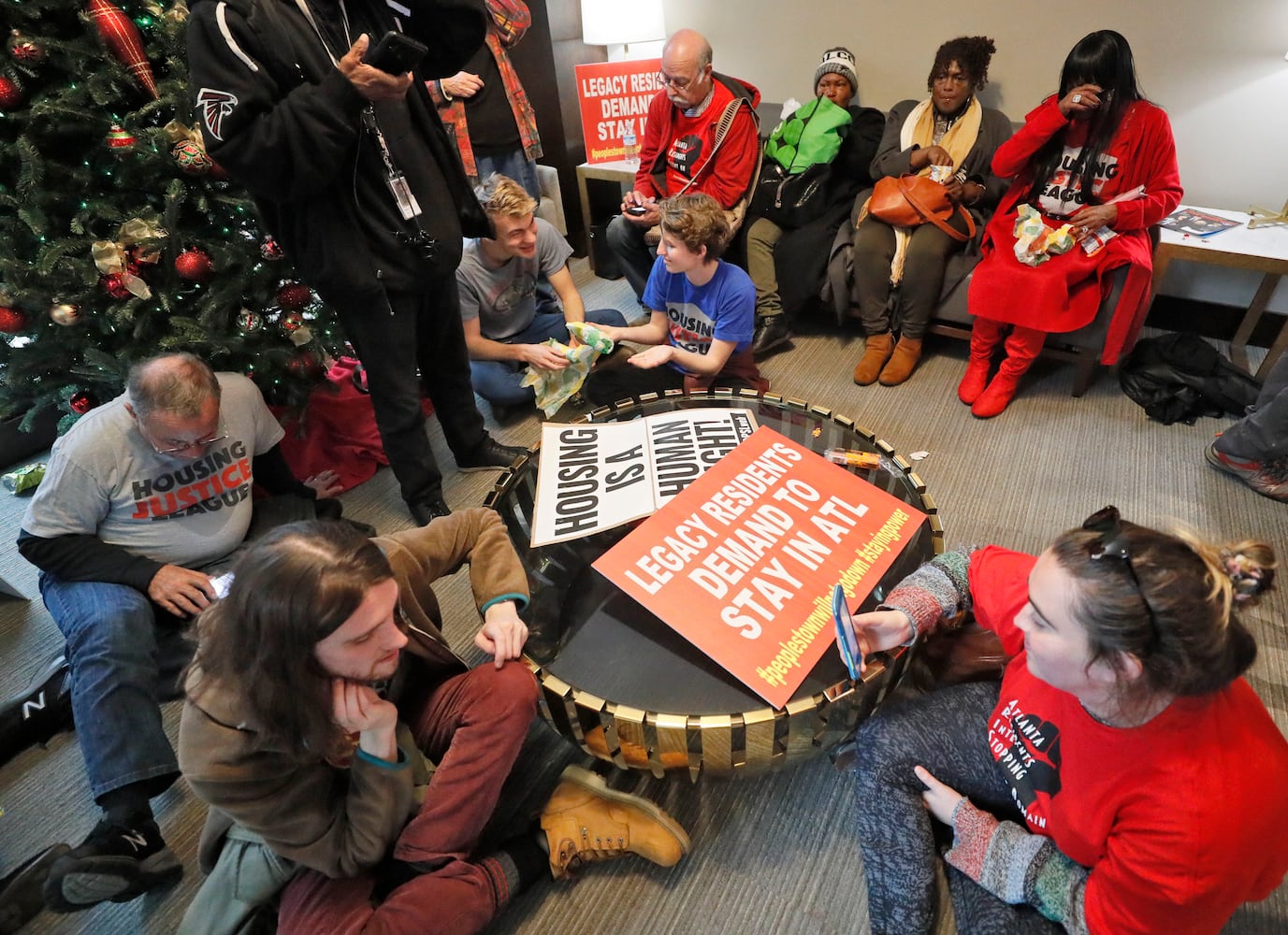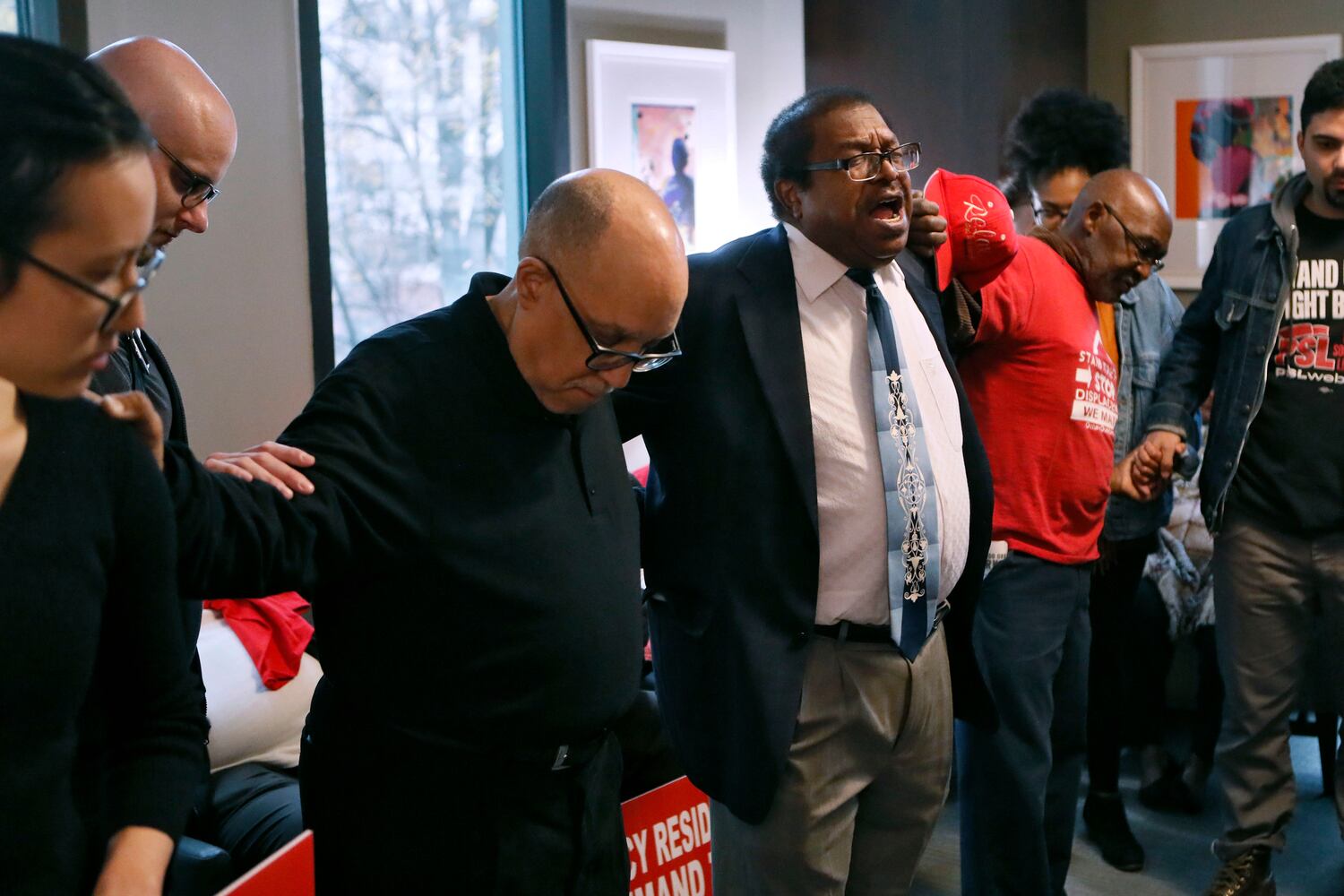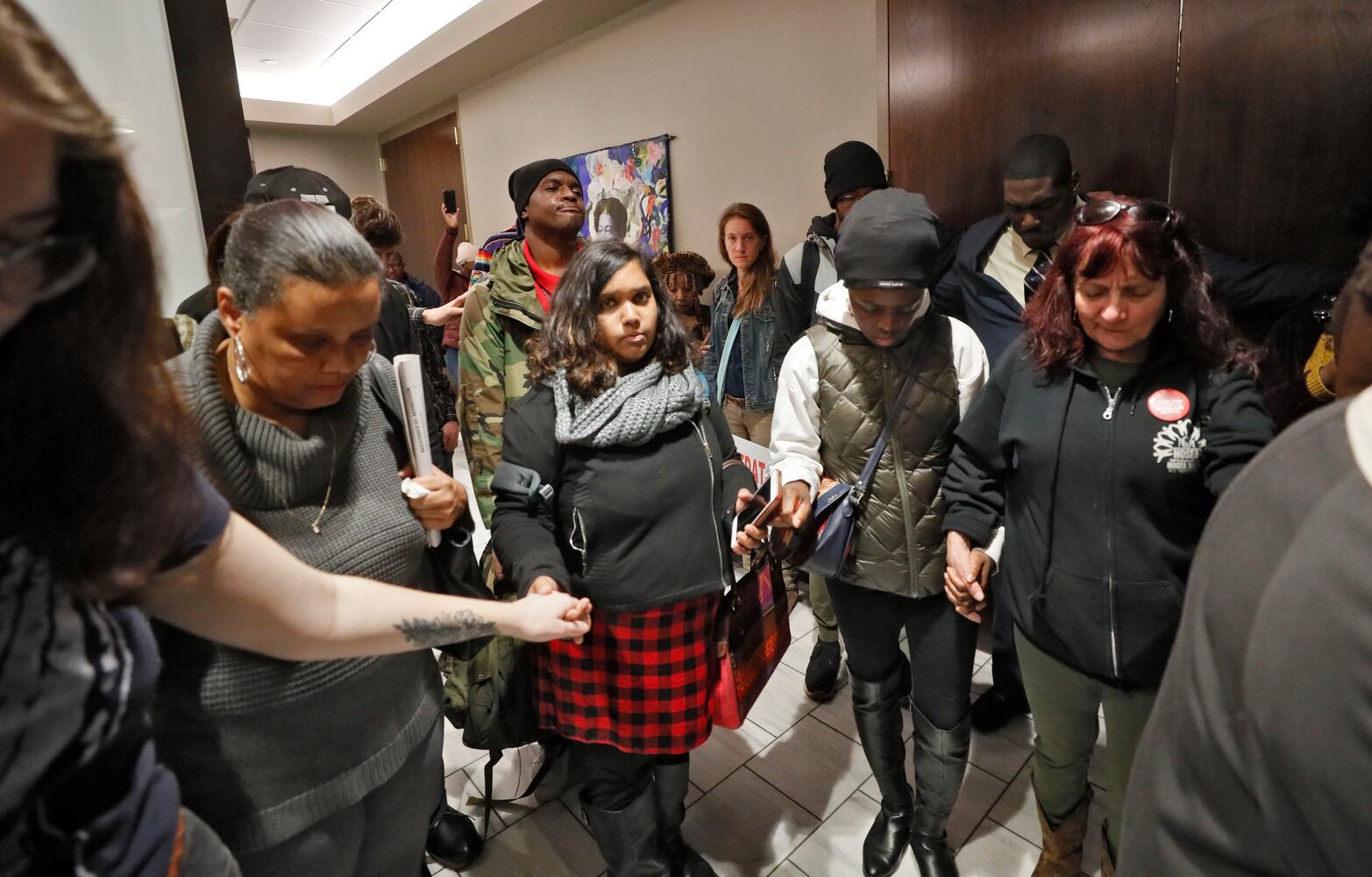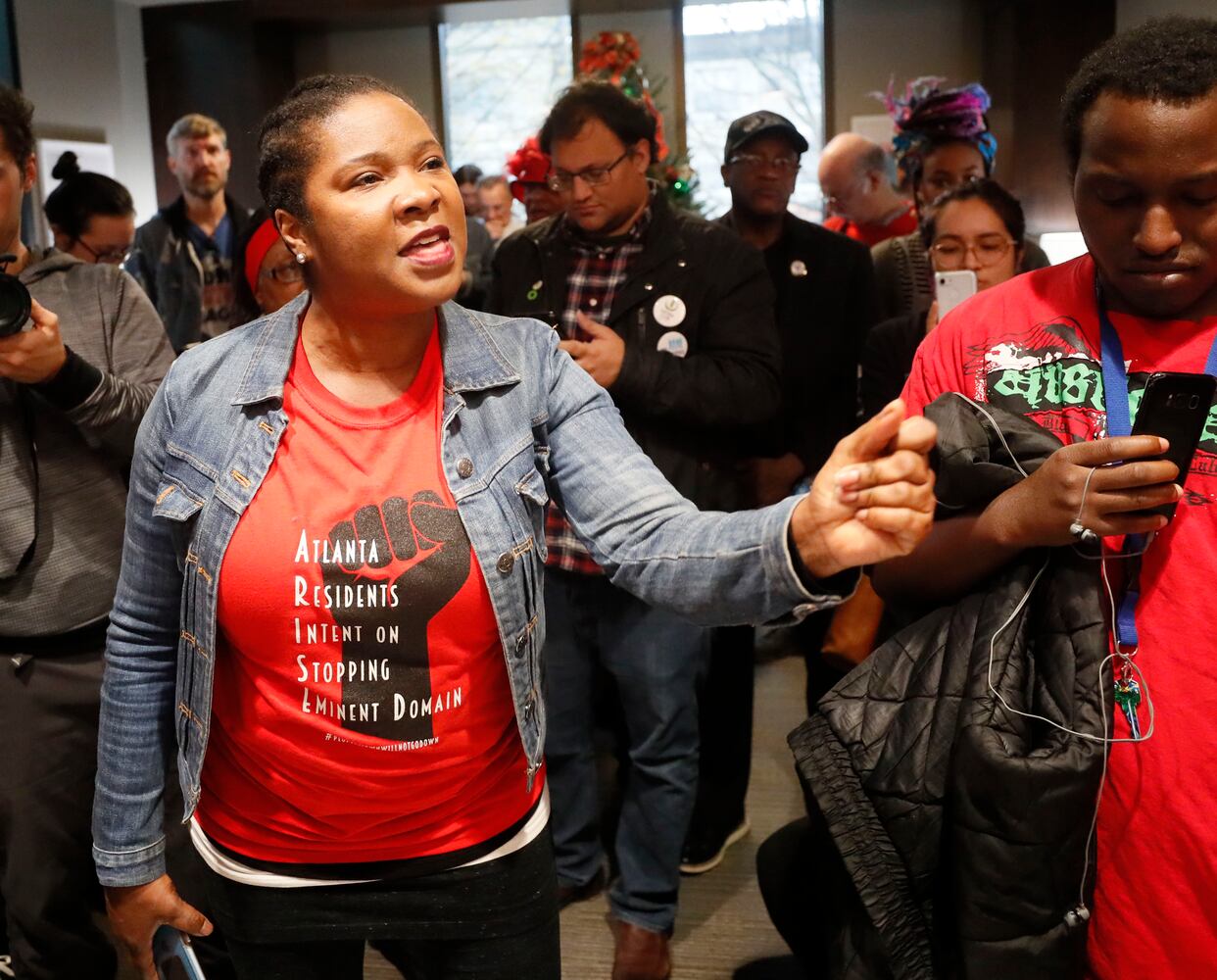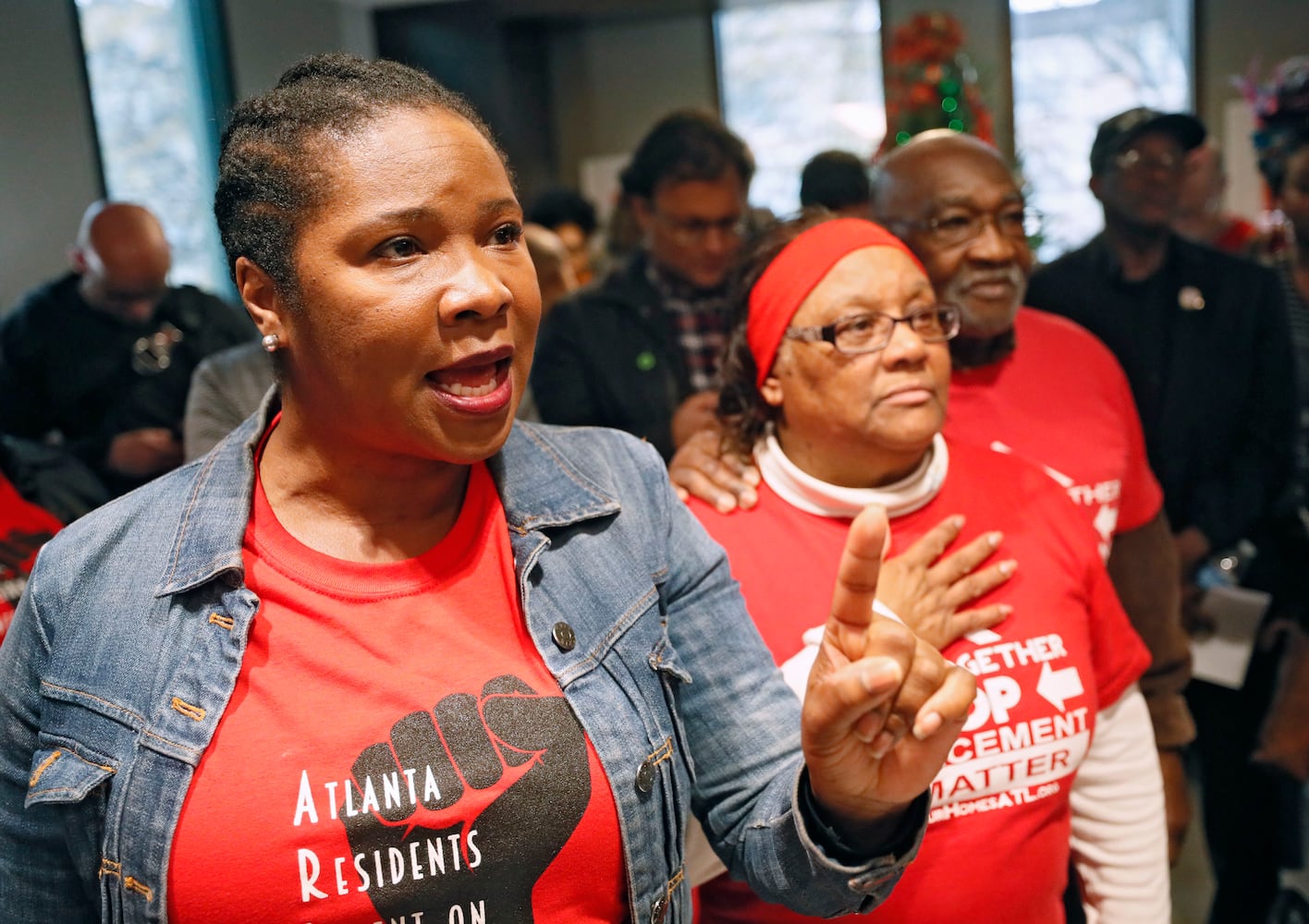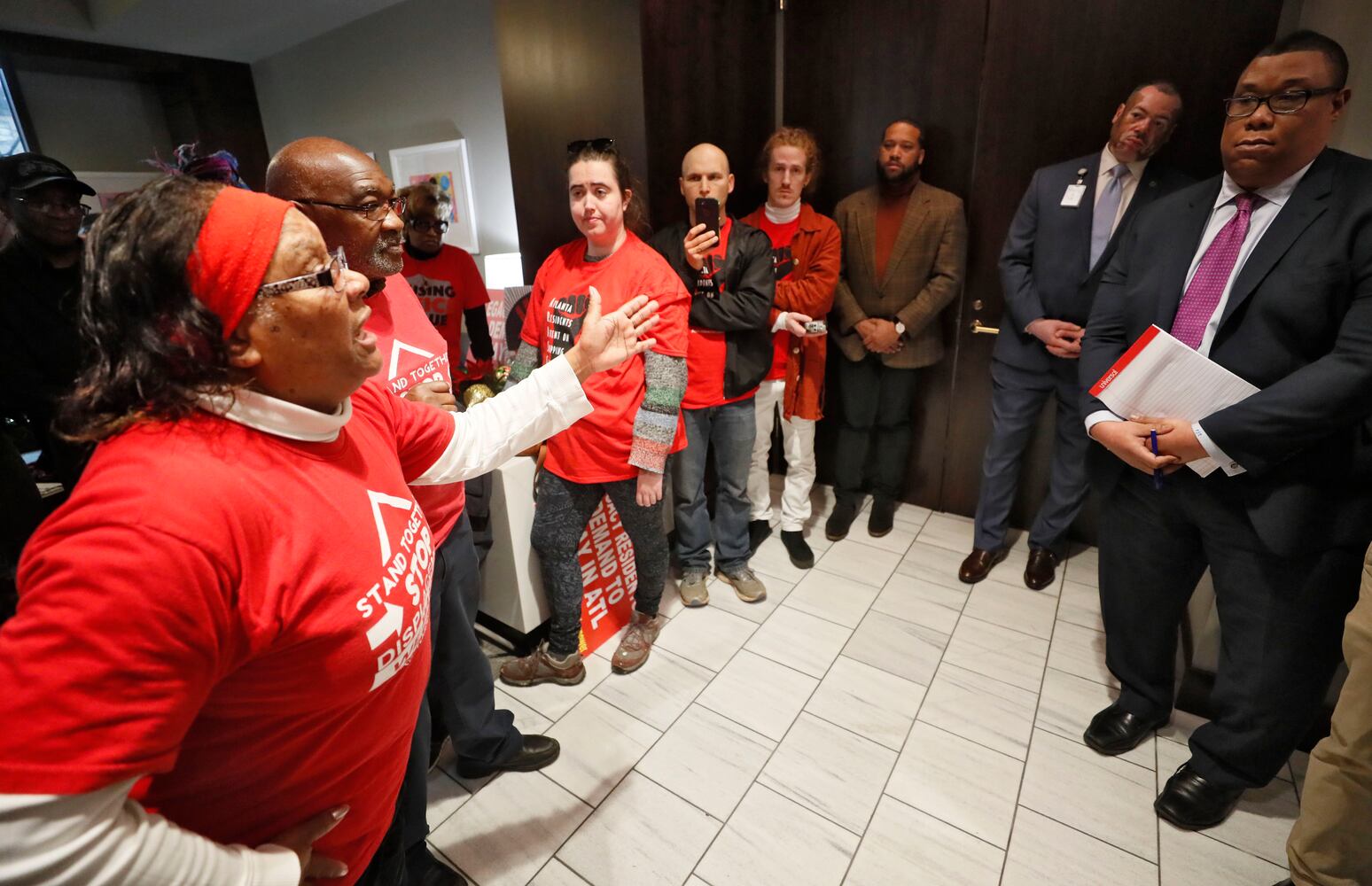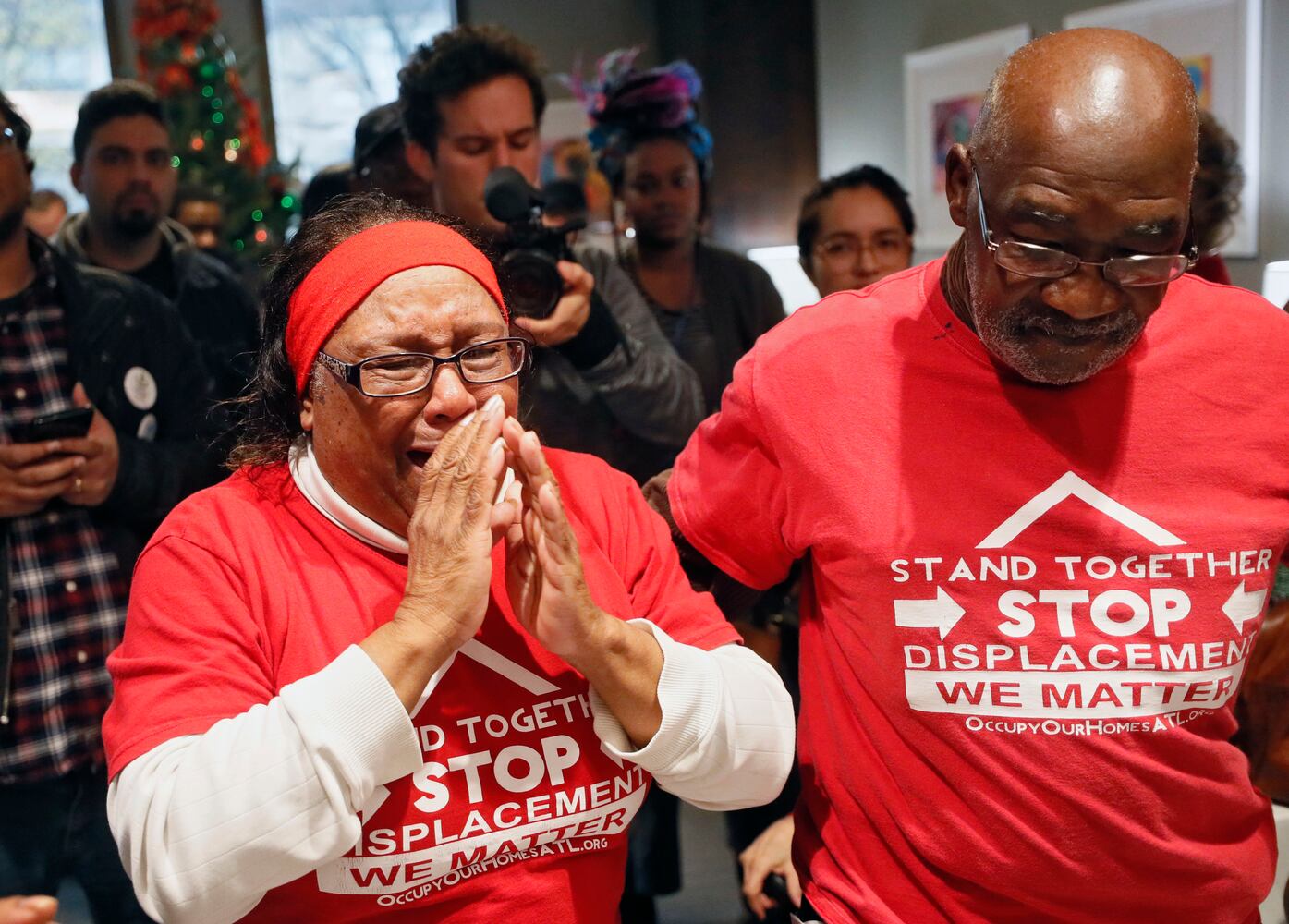About 50 protesters staged a sit-in outside Mayor Keisha Lance Bottoms’ office demanding she do something about what they say is an affordable housing crisis in the city.
Protesters gathered on Monday to criticize the city’s use of eminent domain to seize properties in Peoplestown for public use, as well as high eviction rates.
“The big issue here is Atlanta’s very toxic approach to development,” said Tim Franzen, who sits on the board of the Housing Justice League, an organization that works to preserve affordable housing and prevent gentrification. “We continue to have these big developer deals shoved down our throats.”
Franzen also criticized Bottoms for offering residents “lip service” when it comes to affordable housing.
RELATED COVERAGE:
» AJC Exclusive: Affordable housing? Just make $104K and you’re golden
» Torpy at Large: Affordable housing crisis brings a room with a PU
» Atlanta’s suburbs are facing an affordable housing crunch, too
“You cannot lift your self up as a champion of the people while you’re erasing them,” he said.
There were at least 20 protesters still sitting inside the Mayor’s office and in the hallway outside at 6 p.m. Monday and it wasn’t clear whether police would allow them to stay much later. Police had locked doors to the Mayor’s office and once protesters asked to step outside, they were not allowed back in.
While Bottoms never spoke to the protesters, late in the day, Bottoms’ office issued a statement to the group saying, “The Mayor and senior members of her Administration have met with affected families on numerous occasions to work towards a viable solution to address their concerns.”
Earlier this year, Bottoms rolled out a comprehensive affordable housing plan that included the redevelopment of vacant and blighted properties, developer incentives, and the creation of a housing innovation lab. Bottoms has pledged to leverage $1 billion toward housing affordability to create and preserve 20,000 units of affordable housing in Atlanta by 2026.
The statement late Monday reiterated, “We remain committed to addressing the affordable housing challenges in Atlanta and in under two years, have reached nearly $160 million in public investment towards Mayor Bottoms’ $1 billion affordable housing goal.”
The gentrification of Atlanta neighborhoods has been cited for making homes unaffordable for lower-income residents. The protesters say many longtime residents won’t be able to afford to stay in their homes as surrounding properties and neighborhoods are revitalized, which raises rents and property taxes.
Home prices have more than doubled in the past three years in several south Atlanta neighborhoods, the AJC previously reported. Neighborhoods such as Pittsburgh and Chosewood Park are up 275% and 348%, respectively, according to data provided by Redfin, a national real estate brokerage.
Rising rent rates combined with increased eviction filings have also led to housing issues in the city.
In 2018, an AJC analysis found more than 70,000 cases where metro Atlanta renters got three or more eviction notices at the same property, according to a 2018 AJC investigation. Landlords are using the threat of eviction as a tactic to collect overdue rent. Such serial filings — made within a year of one another at the same property, against a tenant with the same name — rose 17 percent from 2010 to 2016 in metro Atlanta.
PREVIOUS COVERAGE:
» Eviction rates in metro Atlanta among the highest in the nation
» AJC analysis shows landlords increasingly use eviction filings to collect late rent
Two residents of Peoplestown, Tanya Washington and Bertha Darden, demanded Bottoms drop a lawsuit the city filed to force them out of their homes to make way for a city park and pond project that would alleviate flooding in their neighborhoods.
Seven years ago, Atlanta ordered dozens of Peoplestown residents to leave their homes to make way for the flood control project. Now, Washington and Darden are among only four people who still live on the block. While their neighbors took deals from the city to sell and leave, they refused and stayed, waging a legal battle with the city to keep their homes. The residents are still fighting to keep their homes.
A resolution to end the suit was filed in the city’s utilities committee meeting this past summer but has died a quiet death as it was not taken up for a vote in committee before the end of the legislative cycle.
Bottoms’ senior adviser Rashad Taylor told protesters the Peoplestown issue is complex.
“We’re still working through everything on our end,” he said. “We’re getting complaints from people who live downstream with competing interests.” Other Peoplestown residents want the park and pond, saying there are still ongoing flooding issues in their backyards.
Washington and the protesters plan to stay outside her office until Bottoms acts on the issue: “I plan to be here because something needs to happen to demonstrate to her how serious this is,” she said.
About the Author
The Latest
Featured
